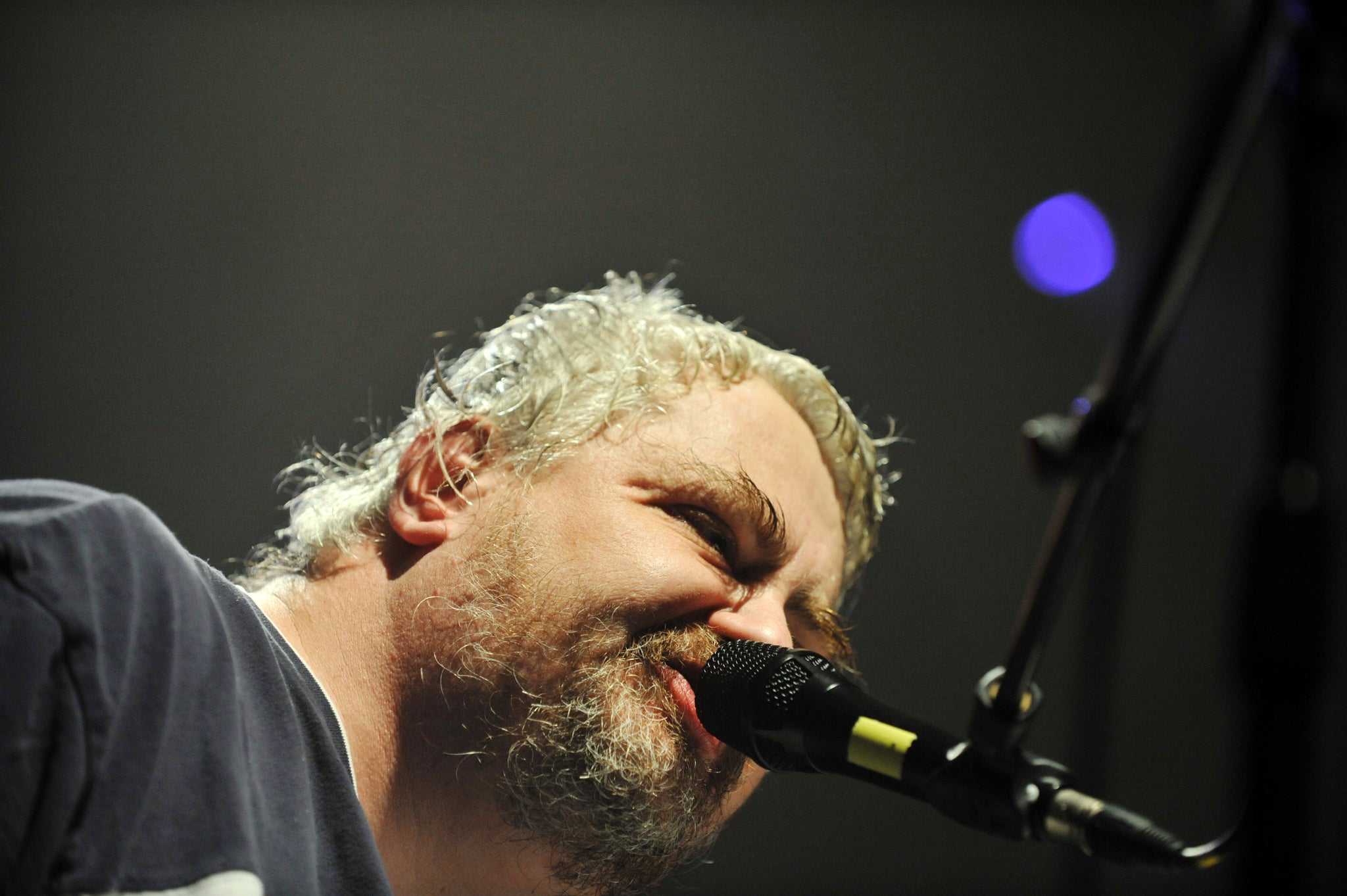
Your support helps us to tell the story
From reproductive rights to climate change to Big Tech, The Independent is on the ground when the story is developing. Whether it's investigating the financials of Elon Musk's pro-Trump PAC or producing our latest documentary, 'The A Word', which shines a light on the American women fighting for reproductive rights, we know how important it is to parse out the facts from the messaging.
At such a critical moment in US history, we need reporters on the ground. Your donation allows us to keep sending journalists to speak to both sides of the story.
The Independent is trusted by Americans across the entire political spectrum. And unlike many other quality news outlets, we choose not to lock Americans out of our reporting and analysis with paywalls. We believe quality journalism should be available to everyone, paid for by those who can afford it.
Your support makes all the difference.“Do you think that it's wrong to be an artist?” Daniel Johnston breaks off tonight’s all-star tribute to his artistry to ask us. It’s a real question that must sometimes torture him, raised as he was by fundamentalist Christians in Texas.
There’s a commandment against the sin of raising graven images, he reminds us. The countless songs he first hand-distributed on cassettes in the 1970s, which Kurt Cobain’s fandom parlayed into a major label bidding war for his work in the 1990s, might just be godless vanity.
The shaking hands clutching his mic-stand like a mast in a terrible storm betray a more obvious suffering inseparable from his art. Johnston, 52, is bipolar and schizophrenic, once tossing the key from his loving father’s plane in mid-air. The musician fans gathered for the first half of this show celebrating the thirtieth anniversary of his LP Hello, How Are You? offer the songs, not the sometimes suffering man.
The Wave Pictures’ take on “Happy Soul” shows Johnston’s directness, and deep well of depressed longing: “when I see my reflection in your eyes/ I know that I don’t want to die.” Teenage Fanclub’s Norman Blake’s steady strum on “The Story of an Artist” points up the repeated, trapped rhythms of a caged, forlorn soul; a crippling self-absorption which has been a honey-pot for indie musicians, though they lack Johnston’s truly pathological source. Willy Mason, by contrast, finds lonesome Americana in Johnston, while Emmy the Great and Jeffrey Lewis separately get the first laughs. Once’s impish Glen Hansard leads us in a finger-snapping chorus of “all my friends were vampires”, before the man who believed that arrives.
Johnston starts with “The Beatles”, immediately setting out the other side of this story. The Beatles and their comic-book equivalent, Jack Kirby, arrived in his 1960s childhood as miracles, making him determined to be the rock star who now stands here shaking but strong, backed by the sort of garage-folk-rock band (led by Lewis, with 1960s folk-rocker Peter Stampfel) he might once have dreamed of. “Silly Love” is stripped back to Johnston’s voice, capable of expressive bursts and softening delicacy.
This is self-conscious, often defiantly hopeful art, whatever otherwise helpless place it came from. He finishes with “True Love Will Find You In The End”. It’s a brave thought from a singer-songwriter who, in following both disciplines, suppresses demons at every step.
Join our commenting forum
Join thought-provoking conversations, follow other Independent readers and see their replies
Comments